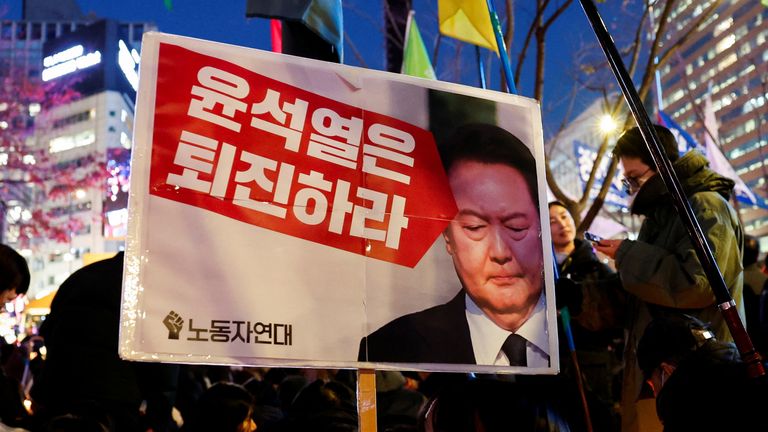South Korea's President Yoon Suk-yeol: Political Crisis and the Imposition of Martial Law
Dec 4, 2024 - 7:54 PM EST

Yoon Suk-yeol, a former prosecutor and now the President of South Korea, took office in May 2022, representing the conservative People Power Party. His presidency has been marked by both achievements and significant scandals. Currently, his actions have precipitated a wave of political crisis in the country.
Political Crisis and Yoon Suk-yeol's Actions
In the last days of December 2024, President Yoon Suk-yeol suddenly declared martial law. This decision was made against the backdrop of accusations against the opposition for attempting to paralyze the government and for harboring sympathies towards North Korea. Yoon stated that such measures were necessary to "protect the free Republic of Korea from the threat of North Korean communist forces."
Immediately following the declaration of martial law, military personnel blocked access to the parliament. This sparked an immediate reaction from the opposition and even some members of the ruling party. The leader of the ruling party called the imposition of martial law a mistake, and the parliament quickly voted to repeal it, highlighting a deep division within the political system of the country.
Societal and International Reaction
The announcement of martial law led to mass protests in Seoul and other major cities, where people expressed their discontent with such a decision. Many see this as an attempt by Yoon Suk-yeol to consolidate power at the expense of democratic norms.
Internationally, the United States, being a key ally of South Korea, expressed concern, although they noted that the decision to lift martial law was a step towards stabilizing the situation.
The Future of Yoon Suk-yeol's Presidency
The situation around Yoon Suk-yeol remains tense. The opposition is actively using his decision as a pretext for an impeachment attempt, which could lead to his ousting if enough votes can be secured in parliament. This makes his presidency one of the most turbulent in recent South Korean history.
Yoon Suk-yeol, in an effort to strengthen his power and respond to what he perceives as internal threats, may have undermined his political stability and reputation. The question of whether he can maintain his position or if his actions will lead to an early end to his presidential term remains open. South Korea's political landscape continues to be in a state of uncertainty, underscoring the importance of democratic institutions and the need for a balance of power.
